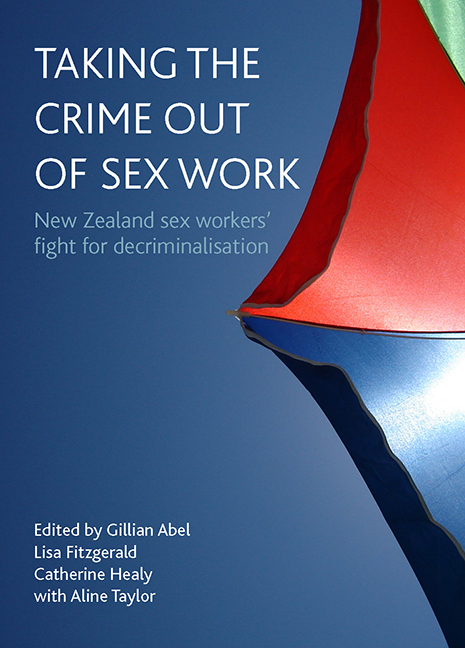Book contents
- Frontmatter
- Contents
- List of tables and figures
- Notes on contributors
- Acknowledgements
- one Introduction
- Part One Lead-up to the passing of the 2003 Prostitution Reform Act
- Part Two Implementation and impact of the 2003 Prostitution Reform Act: the first five years
- Index
- Also available from The Policy Press
ten - Christchurch School of Medicine study: methodology and methods
Published online by Cambridge University Press: 01 September 2022
- Frontmatter
- Contents
- List of tables and figures
- Notes on contributors
- Acknowledgements
- one Introduction
- Part One Lead-up to the passing of the 2003 Prostitution Reform Act
- Part Two Implementation and impact of the 2003 Prostitution Reform Act: the first five years
- Index
- Also available from The Policy Press
Summary
Introduction
This chapter provides a detailed account of the methodological approach and the methods used in carrying out a study at the University of Otago, Christchurch School of Medicine (CSoM) into the impact of the 2003 Prostitution Reform Act (PRA) on the health and safety practices of sex workers. Chapters Eleven to Fourteen draw on the findings from this study. This chapter begins by discussing community-based participatory research (CBPR), which is an approach regarded as best practice when doing research with marginalised groups of people such as sex workers. This approach underpinned all the methods utilised in the research.
Mixed-methods research, utilising both quantitative and qualitative methods, was undertaken and the merits of doing this are described. The description of the methods used in the research begins by discussing the quantitative arm of the research, with the development of the questionnaire, the methods used to sample the survey population, the process of quantitative data collection and analysis of the questionnaire data. A description of the qualitative arm of the research gives attention to the selection of the samples, the semi-structured in-depth interviews undertaken to collect data and the theoretical thematic analysis of the data. The methods to analyse print media are also described.
This study was able to draw some comparisons before and after decriminalisation in health and safety practices of sex workers. In 1999, CSoM had carried out a survey of Christchurch female sex workers. An estimation of the number of workers in the Christchurch sex industry done prior to the survey in 1999 yielded a total of 375 workers (Plumridge and Abel, 2000). The survey sampled to saturation and was able to collect information from 303 sex workers, which represented 81% of the estimated population. Similar techniques were used to sample sex workers in Christchurch in the post-decriminalisation study and some questions in the questionnaire remained unchanged so that comparisons could be made between Christchurch female sex workers’ reporting of health and safety practices before and after the PRA.
The study done in the 1990s cemented a relationship between the lead author and the New Zealand Prostitutes’ Collective (NZPC).
- Type
- Chapter
- Information
- Taking the Crime out of Sex WorkNew Zealand Sex Workers' Fight for Decriminalisation, pp. 159 - 172Publisher: Bristol University PressPrint publication year: 2010



